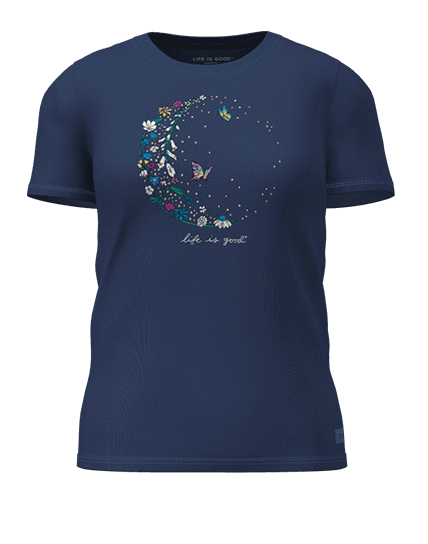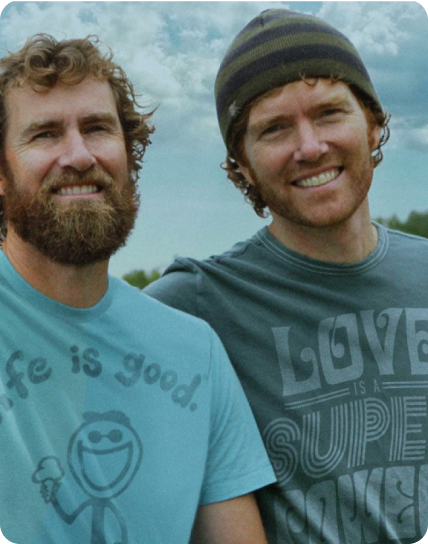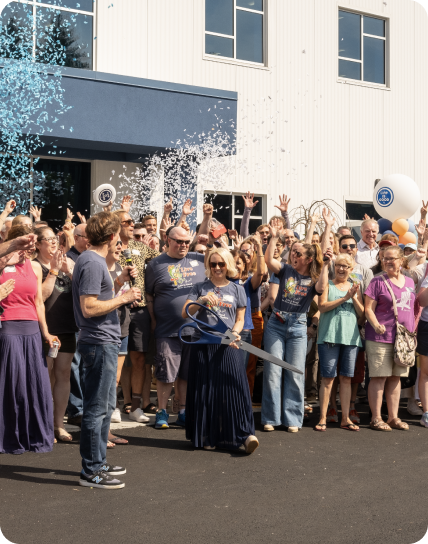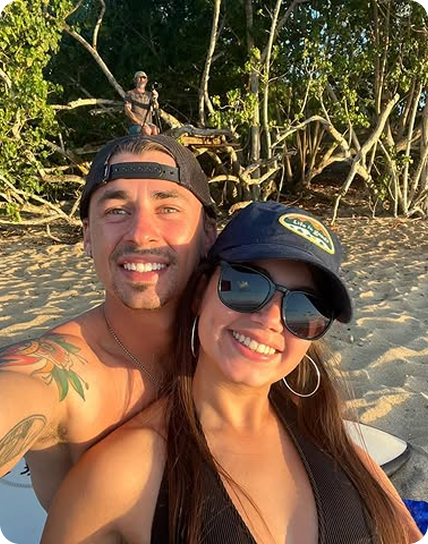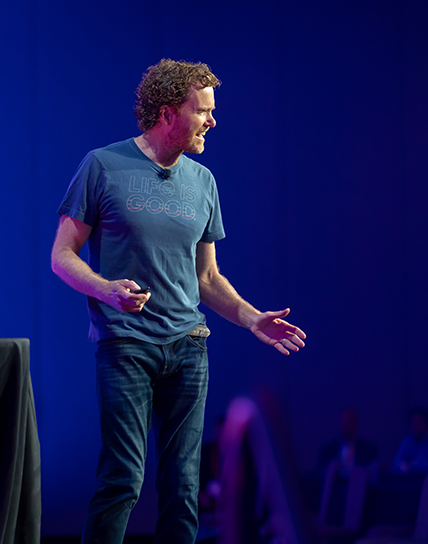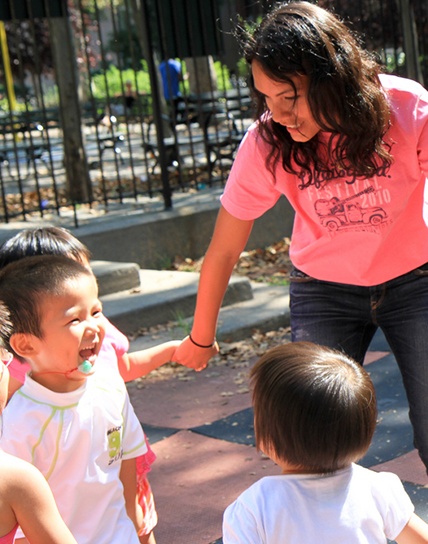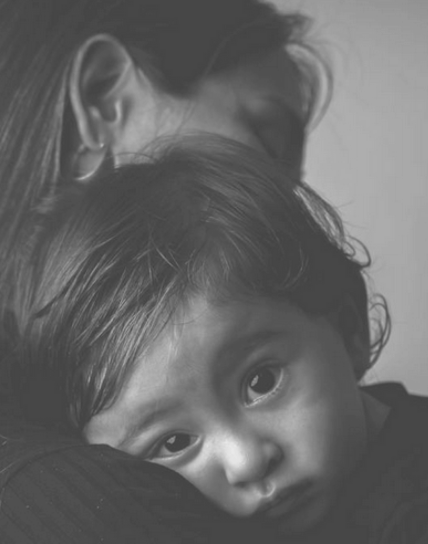The Life is Good Company Code of Conduct
The Life is Good Company (LIG) believes in the health and well-being of our society and natural environment. Life is Good® believes in making a positive difference in the world where we live, and toward that end, LIG is committed to promoting responsible, humane, and ethical work conditions. LIG strives to work with suppliers who train and develop their employees, and who work with the governments and communities in which they operate to improve the social and environmental well-being of those communities.
LIG appreciates that standards may vary from one country to another and from one culture to another. However, LIG believes that all cultures and nationalities should share certain basic standards of appropriate business conduct. LIG respects and promotes the rule of law including, but not limited to, U.S. federal, state, and local laws, the the United Nations’ Guiding Principles on Business and Human Rights, Universal Declaration of Human Rights, and the International Labor Organization (ILO) conventions which establish international human and labor rights.
LIG suppliers are expected to comply with all relevant and applicable laws and regulations of the country in which workers are employed and to implement the LIG Code of Conduct in their applicable facilities. When differences or conflicts in standards arise, LIG suppliers are expected to apply the highest standard.
Legal Compliance
LIG requires compliance with all applicable legal standards and requirements of the host country, as well as those of the United States that are relevant to foreign activities, . LIG expects its suppliers to be in full compliance with all applicable laws relating to labor, employee health and safety, the environment, and customs regulations. Suppliers must take the time to understand these laws, remain informed of updates to the laws, and ensure compliance at all times.
Employment Relationship
LIG suppliers shall adopt and adhere to rules and conditions of employment that respect workers and, at a minimum, safeguard their rights under national and international labor and social security laws and regulations.
Human Rights
Child Labor:
LIG does not tolerate the use of child labor. All employees producing goods for LIG must be at least age 15 or over the compulsory age for school attendance, whichever is higher. Employees under 18 must not work with hazardous materials or during the night. Vendors must comply with the United Nations Convention on the Rights of the Child and all local child labor laws, including those that provide special protections for the health, livelihood, and well-being of workers under the age of 18.
Forced Labor :
LIG will not do business with suppliers who use any form of forced, involuntary, or trafficked labor (including mandatory overtime). There shall be no use of forced labor, including any form of slavery, prison labor, indentured labor, bonded labor, human trafficking, or other forms of forced labor. . No worker should pay any fees during their recruitment process and must be informed of the basic terms of their employment before leaving their home city or country (as applicable). Workers must retain control of their travel documents and have freedom of movement within their workplace and living quarters.
Humane Treatment:
LIG expects our suppliers to treat every employee with respect and dignity. No employee shall be subject to any physical, sexual, psychological, or verbal harassment or abuse. There cannot be discrimination or harassment based on race, color, gender, sex, language, religion or belief, political affiliation or opinion, union affiliation or support, national, ethnic, or social origin, legal or social status, disability (mental or physical), property, age, marital status, capacity to bear children, pregnancy, sexual orientation, genetic features, or any other status or protected characteristic.
Freedom of Association:
LIG seeks suppliers who share our commitment to the right of employees to establish and join unions and organizations of their own choosing. LIG expects our suppliers to respect the right of all employees to associate, organize, or bargain collectively without interference, harassment, or retaliation.
Wages and Benefits:
LIG seeks suppliers who share our commitment to the betterment of wage and benefit levels of workers and their families. Every worker has a right to compensation for a regular work week that is sufficient to meet the workers’ basic needs and provide some discretionary income. Employers shall pay at least the minimum wage or the appropriate prevailing wage, whichever is higher, comply with all legal requirements on wages, and provide any fringe benefits required by law or contract. Where compensation does not meet workers’ basic needs and provides some discretionary income, each LIG supplier shall work to take appropriate actions that seek to progressively realize a level of compensation that does.
Wages must also be paid on a regular schedule, have an understandable pay slip (which includes days worked, wage or piece rate earned per day, hours of overtime with the rate specified, bonuses, allowances, and legal or contractual deductions), and must not include conditional employment practices, such as apprentice or training wages, or practices that would lower an employee’s pay below minimum wage.
Working Hours:
LIG expects suppliers to set working hours in compliance with all applicable laws. Employers shall not require workers to work more than the regular and overtime hours allowed by the law of the country where the workers are employed. The regular work week shall not exceed 48 hours. Employers shall allow workers at least 24 consecutive hours of rest in every seven-day period. All overtime work shall be consensual, and employees must be able to refuse overtime without any threat of penalty, punishment, or dismissal.
Employers shall not request overtime on a regular basis and shall compensate all overtime work at a premium rate. Other than in exceptional circumstances, the sum of regular and overtime hours in a week shall not exceed 60 hours.
Health and Safety:
LIG expects suppliers to provide a safe, healthy, and hygienic working environment for all employees. Suppliers must take necessary steps to prevent accidents and injury connected with the supplier’s factory and facility operations. Suppliers must also have systems in place that detect, avoid, and respond to potential health and safety risks and provide regular training to employees on workplace safety practices.
Environmental Impact
LIG cares about the well-being of our natural environment. LIG seeks to ensure that our business partners use materials and processes that are designed to minimize the negative impact on the planet. LIG favors partners who have management systems that demonstrate an environmental commitment and show an effort to continuously evaluate, implement, and improve environmental performance. At a minimum, LIG expects suppliers to protect human health and the environment by meeting all applicable legal requirements for air emissions and waste and water discharge, have an emergency plan in case of environmental accidents, store hazardous materials in a secure and ventilated area, and safely dispose of all hazardous materials. Potentially hazardous substances in inks and dyes must be eliminated or below levels at which they are known to cause harm.
Transparent and Ethical Practices
LIG expects our suppliers to practice transparent and ethical business operations at all times. LIG requires suppliers to provide full and open access to their facilities and to relevant records and documents in order for LIG staff and representatives to conduct ongoing audits and reviews for compliance. All supplier documentation must be accurate and truthful. Suppliers are required to disclose conditions that may be in conflict with any LIG Code of Conduct requirement. Suppliers must prohibit management personnel from receiving gifts, payments, or other favors in exchange for jobs, preferential treatment, business opportunities, or other advantages. Supplier employees must have the opportunity to notify LIG confidentially and anonymously about any violations of standards at a workplace and must not receive any retribution or retaliation for this action.
Suppliers must disclose the identity, physical location and ownership of all factories that will produce LIG products, including the use of subcontractors. Any proposed change from one factory to another or the use of sub- contractors must be approved by LIG before production begins.
Implementation of Code
As a requirement of doing business with LIG, suppliers must fully implement and integrate this Code of Conduct, the accompanying Code Guidebook, and all applicable laws into their business operations. Vendors must post this Code in the language(s) of its employees in all major workspaces and must effectively communicate the contents of the Code to those employees who are illiterate. Suppliers must also train employees on their rights and obligations as defined in this Code and in applicable country law and must ensure compliance of all approved subcontractors. Suppliers must establish a grievance mechanism that allows employees to address their concerns regarding working conditions and terms of employment.
LIG takes these issues very seriously, both for their effect on the human condition, and their effect on our reputation with the ultimate consumer. If LIG learns that a factory, subcontract facility, or warehouse used by any of our vendors for the production, storage, or distribution of our merchandise has failed to comply with our Code of Conduct, LIG may, among other actions:
• Insist that remediation steps be implemented in a timely fashion to redress the Code violations and prevent their reoccurrence
• Cancel the affected order
• Terminate our relationship with the supplier
• Take legal action to recover any damages to recoup any financial losses incurred by LIG or pursue other available equitable remedies
Questions
Any questions about this policy and LIG's expectations should be directed to privacy@lifeisgood.com
The Life is Good Company
253 Summer Street, Boston, MA 02210 USA

























